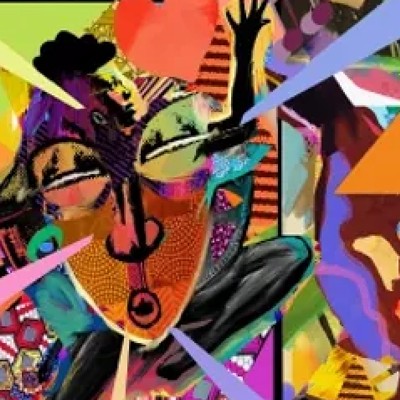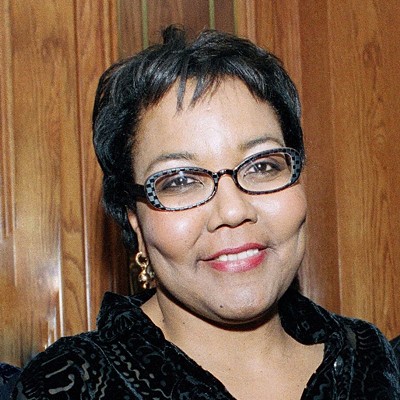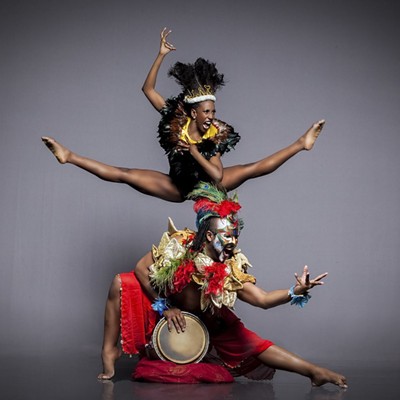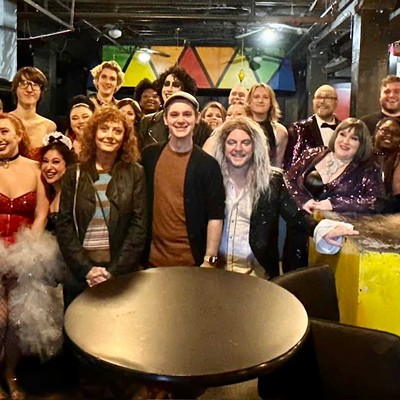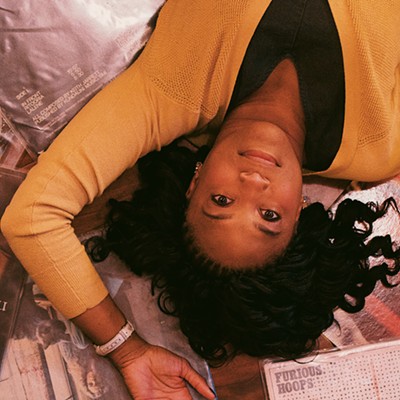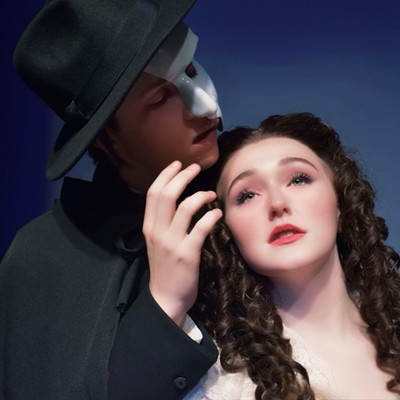SAVANNAH'S OWN DR. JA A. JAHANNES is an internationally recognized, award-winning author, psychologist and social critic whose written works range from poetry and symphonic librettos to essays and academic papers. At 66, he has recently retired from his position as professor of psychology at SSU to concentrate on running his own repertory company and pastoring to his congregation at the Abyssinia Baptist Church.
This year’s Savannah Black Heritage Fest showcases three of his original plays — all of which deal in a frank manner with the realities of living with HIV/AIDS. I caught up with this industrious Renaissance man for an extended chat about these upcoming performances.
These three plays all confront the realities of African Americans living with HIV, correct?
Ja Jahannes: Actually, these plays confront the realities of imprudent, unsafe sex, period, and the disastrous consequences of contracting HIV, AIDS or hepatitis. The plays are geared towards young adults who are sexually active, but the messages are for everyone, black or white, young or old.
How did you first get involved with the “Get in the Know” HIV/AIDS/Substance Abuse and Hepatitis Awareness Project that is sponsoring this performance?
Ja Jahannes: Dr. Johnnie Myers, director of the HIV/AIDS/Substance Abuse and Hepatitis Awareness Project at Savannah State University saw my play Yes, Lord at the Ferst Center for The Arts At Georgia Tech and asked me if I would write something for her federally funded program at Savannah State University, one of several national programs that targeted college age African Americans. I was trying to meet a deadline for two novels with my agent but she was so persuasive and the issues were so compelling that I accepted.
After looking at how uninformed, cavalier sexual behavior affected so many young people, I felt it a ministry to write something that was edutainment – that is both educational and entertaining. So Juice was born. Good theater is good theater, no matter what the subject. Juice is not preachy or pedantic; it is theater with pathos, humor, subplots, the substance of real contemporary lives. It is an urban play, with the kind of language and situations young adults experience every day.
At what point did you decide to write either one or both of those follow-ups - before or after you wrote “Juice?”
Ja Jahannes: Juice had been performed three times in April and three times in September and still we were turning away hundreds of people. The audiences were college students, community people and groups from organizations, black and whites. I was asked to direct it again at The Lucas Theater in February. People who had attended performances stopped members of my repertory company, J-Rep and me everywhere asking questions about what happened to the characters. I realized that there were other issues that we could bring out if we brought those characters back and added a couple of others. So From Young Black Men Who’d Never Consider Suicide and Sisters Going Through were born to give the characters and HIV/AIDS a broader social, emotional and moral context.
The issues in these plays are reflected in communities all over America and around the world. I didn’t so much write these plays as hear these characters speak to me. I often joke that “When a schizophrenic hears voices speaking in his head, he talks to them, a writer writes down what they are saying.” The characters speak to me at night, in the middle of the day; I took notes, captured what they said. They were speaking to me, speaking to people who might listen to them but not listen to a TV commercial about STDs or listen to their parents or their pastors. These characters are real to me. They make me think, cry, laugh. And the actors of J-Rep breathe life into them. I don’t think anyone who sees the plays will leave without feeling these characters and their stories.
How long did it actually take for you to write these plays, from conception to completion?
Ja Jahannes: It took months to write Juice but only weeks to write the sequels. I write and constantly revise. I write in software that allows me to rewrite and edit while tracking every change with every character in every scene. I teach play and screen writing with this software, which I helped develop, so as long as the ideas flow, and the characters speak to me I can go at it nonstop for long hours day after day.
What sort of response did you receive about the first in this dramatic series before it actually debuted? Was there any resistance to a play about the complexities of the AIDS crisis?
Ja Jahannes: We were blessed to have audiences that were hungry for theater. Fortunately, I have a pretty good reputation in terms of theater. All the plays I have produced in Savannah have had overflow audiences.
Are any of the actors and actresses who’ll be on stage for this triptych of plays holdovers from the earlier production of Juice?
Ja Jahannes: Most of the actors in Juice are hold overs. We lost one of our principals, Kiyana Neal, because she just signed a recording contract with Universal Records and had to move away. There are two new characters in From Young Black Men Who’d Never Consider Suicide and two new characters in Sisters Going Through. The characters in Juice are mostly in their late twenties, and we added older characters in Sisters and an ex-con in From Young Black Men.
I notice that Juice features a total of 13 songs. How long does each play run, and with so many songs included in the first one, what is the ration of dialogue to music in Juice?
Ja Jahannes: The songs in Juice average about three minutes, some longer and some shorter because they extend or underscore the dramatic action. From Young Black Men opens with a powerful hip-hop song, “Prison Soul” and dance by powerful young actors/singers, Stephenn Dorn and Rashard Russell. I loved the challenge of writing “Prison Soul” with co-composers Badru Myers and Tirus McClure of Sippy Music in Atlanta. My actors said “Doc, are you gonna write some old school funk?” I said “No, I’m gonna write like my boy T Pain.” Come check it out, see if it’s hittin’.
There are two long play songs with dance in Sisters Going Through. They are neo-soul, a little Jill Scot meets Jennifer Holiday. As a music critic I invite your ear to check them out. And the lead vocalist will be Virtania Tillery, backed by my singing group ITK. I promise this music will move you.
To answer your specific question, Juice runs for 90 minutes. There is a fifteen minute intermission and the two sequels together run one hour. So that’s two hours and thirty minutes total, your average theater time.
It’s widely accepted that the black community suffers from what many perceive as a disproportionately high level of systemic homophobia — much of it rooted in the church experience. Did your target audience’s entrenched unease with many ancillary aspects of the AIDS crisis factor at all into the creative process of crafting these plays?
There has been no rigorous, scientific study of so-called “systemic homophobia” in the black community. My ministry is to anyone who is in need. That is to me the essential lesson of Christ. We too often confuse worldly, narrow religious systems with the will of God. That shortchanges God.
You’ve been involved as an educator, an author for many years. As the times continue to evolve and change, do you ever find it difficult to relate to modern black youth culture in your works?
Ja Jahannes: I never find it difficult to relate to modern black youth culture or the culture of young people of any race or ethnicity. I believe you cannot effectively teach people whose culture you do not understand. And, I don’t pigeon-hole everything as black and white. There is more disparity between the culture of older people and younger people than there is between the cultures of racially different young people. One of the reasons people get old so fast and miss out on so much of life is because they become fixed in time as time and culture changes. I am invigorated by the talent, the perceptions, the insights, the issues which young adults present. They teach me something every day; in return I try to share with them something of what I think is of value in living.
What sort of methods do you use for keeping your writings relevant and interesting for the younger generations who continue to have to grapple with such issues as these?
Ja Jahannes: I listen to the language of youth. I listen to their issues and I ask questions. I want to know what they are thinking and why they think what they do. I also field test whatever I write. I ask individuals with the same demographic characteristics —age, background, etc...— do you think this is what the character would say or do, why or why not. In the early stages of getting a play on its feet, the actors will make suggestions, too. I listen. And my barbershop is a good place to listen to the flow of language. I leave with a haircut and some psycho-linguistics every time. Sometimes what I hear takes decades to reach the stage but if it’s powerful it will birth itself sooner or later.
Since these plays are targeted specifically towards problems faced by young black men and women, do you think it may be hard for folks of different ethnic backgrounds to easily relate to some of the situations and views espoused in the plays, or do you think these dramas can speak equally to young people across the board?
Ja Jahannes: These plays are for people who like theater.
Have these plays been performed by any other repertory groups outside of your own? Are there plans to actively market these plays to other black-oriented theatrical organizations, or perhaps to tour these productions regionally?
Ja Jahannes: The company was invited to perform Juice this summer in Orlando for a national conference on HIV/AIDS but the logistics prevented us from accepting the invitation. Theater costs and we are a relatively young company so we do not have the ready built show that would enable us to program or accept offers without some subsidy. The three plays are currently being considered for The National Black Arts Festival in Atlanta, the largest cultural arts festival of black culture in the world. We expect the executive director or her representatives to be present at the Lucas on February 4th. We have also had numerous requests for the DVD and the CD of the September performance but we want to go back into the studio on the CD and we will be video recording the performance at the Lucas.
We are excited about the Lucas performance because the theater is the best dramatic venue in Savannah. Ken Carter, the director of the Lucas and Jim Prodger, the masterful technical director, have been most helpful in insuring a professional, technically exciting performance. And this is the 20th year of Savannah’s Black Heritage Festival. I have volunteered with that festival for 18 out of its 20 year history so it’s good to be a part of this anniversary.
If you had to name your one most fervent wish or hope that might come from audiences seeing these three plays, what would that wish be?
Ja Jahannes: I hope that people would be more cautious about their sexual behavior and consider that what they do not only affects them and their lives, but also those who love them.
20th Annual Savannah Black Heritage Festival presents: Three Plays Written & Directed by Ja A. Jahannes
When: 7 pm, Wed., Feb. 4
Where: Lucas Theatre
Cost: Free to ALL-AGES (recommended for ages 15+)


